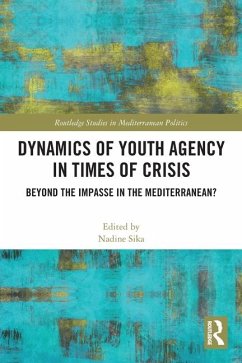
Ontological Entanglements, Agency and Ethics in International Relations
Exploring the Crossroads

PAYBACK Punkte
28 °P sammeln!
The implications for ethics and political agency of embracing an ontology of entanglement have remained unexplored. This work focuses on the importance of addressing the ontological and epistemological assumptions of the discipline of International Relations.














